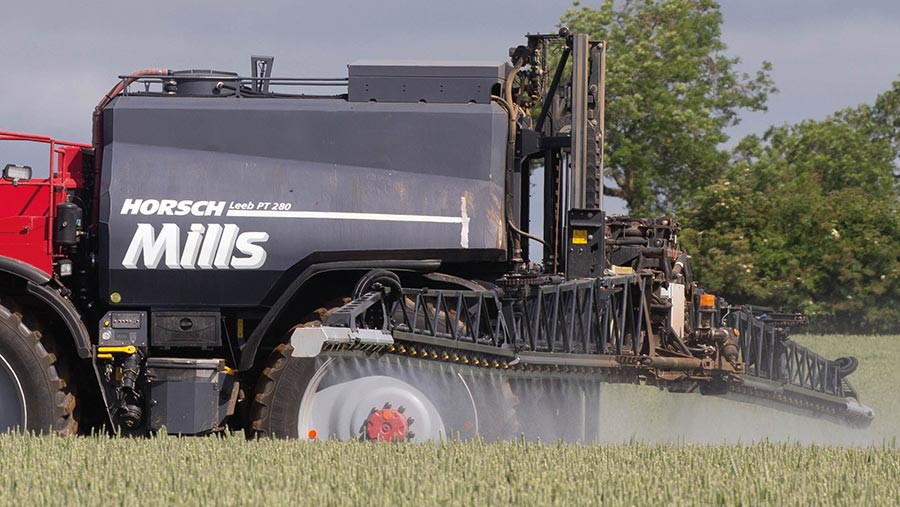RSPB demands tighter pesticide controls to protect wildlife
 © Tim Scrivener
© Tim Scrivener The RSPB is demanding new targets are set to reduce pesticide use in UK crop production to protect wildlife.
In a new report published on Wednesday 29 June, the wildlife charity is highly critical of what it says is a “lack of research and weak regulation” of more than 150 pesticides currently used by UK growers.
See also: NFU upbeat as gene editing bill progresses through parliament
Its Pesticides and wildlife: a decades-old nature crisis report calculates that 40m hectares are treated with pesticides every year, because many crops are sprayed multiple times.
Katie-Jo Luxton, the RSPB’s director for conservation, said the UK had “sleepwalked” into pesticides being the accepted way to manage land.
“The combination of lack of research, inadequate risk assessment and weak regulation has created a toxic situation where an unchecked cocktail of different chemicals are regularly applied across our countryside,” she claimed.
The RSPB highlights what it says are “glaring omissions” in the pesticides approvals process.
Among these is not testing for sub-lethal effects on the behaviour of animals, and their long-lasting, cumulative effects.
Toxicity testing is also restricted to a single active substance, while potential interactive exposure is not considered.
“We need a new approach to land management that focuses more on alternatives and less on chemicals,” the RSPB says in its report.
It acknowledges that many “innovative and progressive farmers” are reducing pesticide use and that governments must “step up their support” to encourage more.
The RSPB’s specific demands of government
- Pesticide reduction targets, addressing total use as well as overall levels of harm to wildlife
- Financial support, training and independent advice for farmers to reduce reliance on pesticides
- Increased investment in research and development of non-chemical alternatives
- Stronger pesticide approvals processes that understand the real-world effects
Response
In response to the report, CropLife UK, which represents the UK’s plant science industry, said that without plant protection products (PPPs) 30-40% of food would be lost.
Its head of policy, Josh Woolliscroft, said UK farmers were under significant pressure to deliver more with less, while reducing the environmental impact and protecting biodiversity.
“It is critical that farmers have a wide choice of tools available to them to cultivate and protect crops,” he said.
Mr Woolliscroft said current risk assessments require huge data packages to comprehensively consider human and environmental risk.
“PPPs that are used in the UK are subject to a world-leading, independent, rigorous risk assessment to prove that they are safe and effective for use.”
